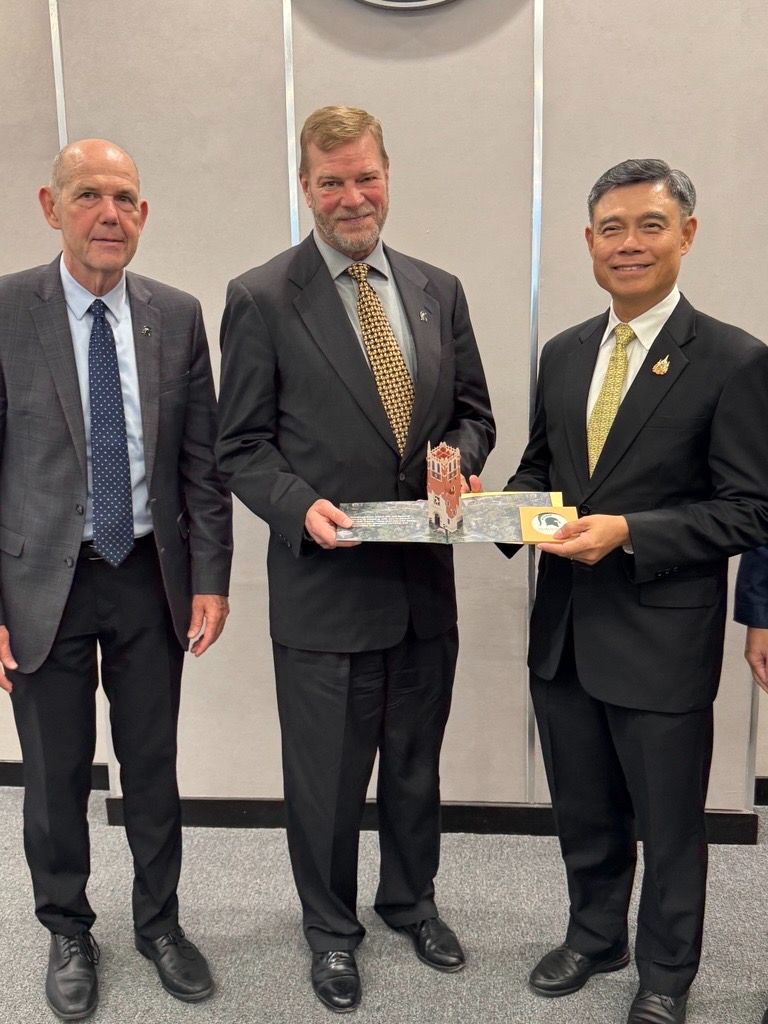Michigan State University’s Asia Hub held its annual meeting in Thailand on Nov. 12-13. Hosted by Chiang Mai University, the meeting convened 15 member organizations and approximately 200 individuals to engage in workshops and participate in presentations that address the challenges of the Water-Energy-Food Nexus.
Asia Hub partners work to solve global problems through collaborative research, providing expertise to strategize research priorities, identifying funding opportunities and strengthening research capacity across the Asia Hub network.
Established in 2017 between MSU and Nanjiing Agricultural University in China, Asia Hub has grown to include 34 universities and five organizations that span across 19 different countries.

The level of engagement from MSU faculty and administrators who presented and participated in this year’s workshops and sessions is evidence of the university’s commitment to international partnership and key research issues.
“It was wonderful to have around 20 MSU faculty and administrators at the Asia Hub annual meeting this year to fulfill its goal of connecting MSU faculty with experts from our partner institutions,” said Jiaguo Qi, director of Asia Hub and MSU professor of geography.
“MSU faculty included those from the colleges of education, agriculture and natural resources, engineering, social science, veterinary medicine and the Institute for Global Health. These faculty actively engaged in panel discussions, served as rapporteurs and gave keynote presentations — all highlighting MSU’s strengths and leadership in collaborative research and education.”
Additionally, MSU’s Interim Provost and members of the leadership team in MSU International Studies and Programs were actively engaged in the conference.
“I was honored to be part of this year’s annual Asia Hub meeting and participate in a panel discussion with other university leaders on emerging trends in international research and education,” said MSU Interim Provost Thomas Jeitschko. “Participating in this year’s meeting and leadership panel allowed me to engage in conversations about collaborative research opportunities, discuss hot topics in water-energy-food nexus research, and explore how Asia Hub partners can co-create innovative solutions to meet the needs of our diverse global communities.”
Preceding the annual meeting, a two-day workshop funded by Future Earth and European Space Agency, brought together 20 junior faculty members from various Asia Hub partner institutions as well as four leading scientists in Earth Observations for WEF Nexus from Canada, Italy, Thailand and the U.S.
"MSU’s continued strength in global engagement is only possible through collaboration." - Steven Hanson“MSU’s continued strength in global engagement is only possible through collaboration,” said Steven Hanson, vice provost and dean for International Studies and Programs. “Platforms such as Asia Hub enable us to build networks of partners that share common goals and a commitment to work together to take on the most pressing challenges of our time.”
Following the annual meeting, the MSU Asia Hub team and Associate Dean Titus Awokuse traveled to Bhutan to explore new partnerships, visiting the College of Natural Resources and Royal Thimphu College.
“The last few weeks have been very busy but very rewarding. We appreciate the greater diversity among partner institutions and the active engagement and forward thinking. The discussions that have occurred among partners and potential partners signify many new opportunities for collaboration,” Qi said.
This story originally appeared on the International Studies and Programs website.



